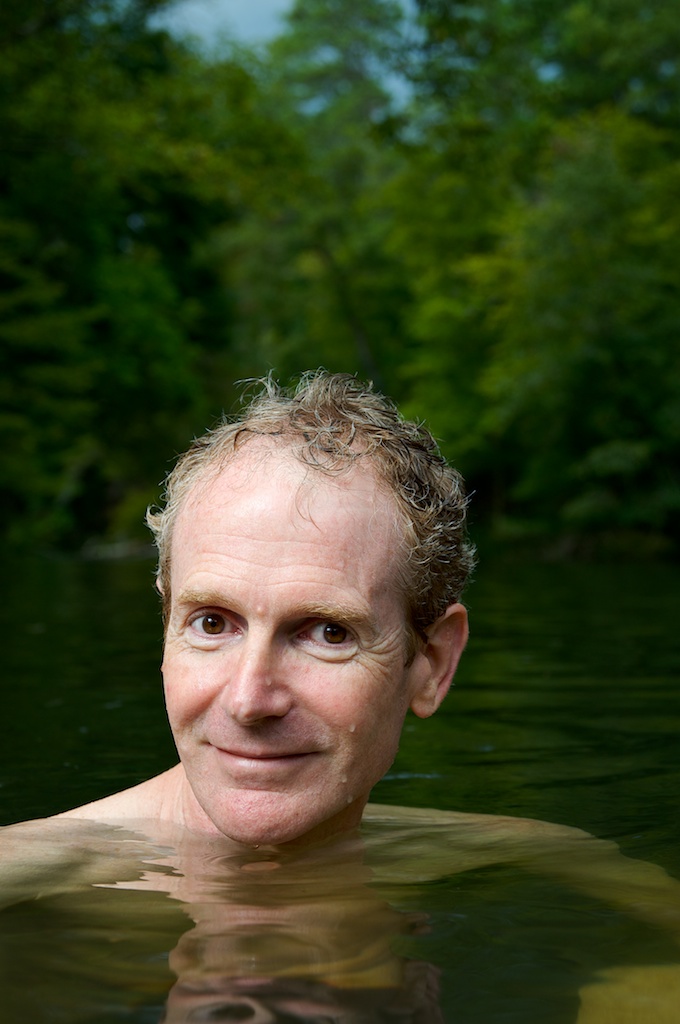Duncan suggests that there is both an active and a passive Hope.
Duncan Blair is a husband, father, banjo player and attorney who happens to have Parkinson’s disease. He is pictured above in the Little Cahaba River, which runs behind his home. Swimming in this water is a healing thing for him.
The time I spent talking to him was the most intellectually challenging, yet stimulating, of all the talks I have had on the subject of Hope. I believe the disease does not define him, but instead challenges and informs his intellectual consciousness. Though I know he is a thinker, and had given the subject thought before we began, he expressed conflicting view points. This only confirms the feelings I have about the depth, or lack of depth and understanding, we have about Hope.
He begins saying; “Hope is more of an innate outlook on life…..one can’t will oneself into a state of Hopefulness by saying, Today I am going to be Hopeful”.
He is the one who has illustrated for me the concept that there is an active and passive Hope. This is at the heart of my feelings about Hope, and inspires my discussions. He says “I think Hope, in that sense of having a positive outlook or hoping for things to go your way, is passive. But for me hopefulness is active.” And later he refrains; “Hopefulness is; what are you gonna do with your life? It is not passive at all. It’s active”
And yet after initially expressing the innate nature of Hope he says, “Ideas matter, your intellect matters. I think that is where there’s a lot of room to grow. I’m gonna get up today and I’m gonna do these things, because it’s the only life I’ve been given. And I have determined after reflecting on it that this is the kind of person I want to try to be. How do you get there? You get there through you mind or your intellect.”
After a long elaborately interesting discussion about the French philosopher Albert Camus’s book “The Myth of Sisyphus” (more on this later, because it was good!) we evolved into another line of thought about intellectual vs innate or intuitive childlike hope. Duncan says he is sometimes envious of those who don’t over think life. “You want to know the truth? I envy people like that.” I asked again are there those who are not hopeful because something in their experience crushed or suffocated their natural childlike hopefulness? He said, “The unfortunate thing is that there are a lot of people out there who are not hopeful. It’s not because they have chosen to be that way, it’s just because of the way they are wired.” Good answer that I agree with, but when did the “wired” take place, at conception or later in life?
I suggest that I think it is not necessary to have an intellectual understanding of Hope to be hopeful and Duncan says, “I wish I could have that kind of Hope. I think I lost it somewhere in college.” The fact is, I don’t think he lost his Hope. I believe he has developed a more thoughtful “active” Hope!
Thanks for taking the time to read this. My Hope is that you will comment and share this discussion with others, and that they will help enrich this on-going dialog.


No comments yet.